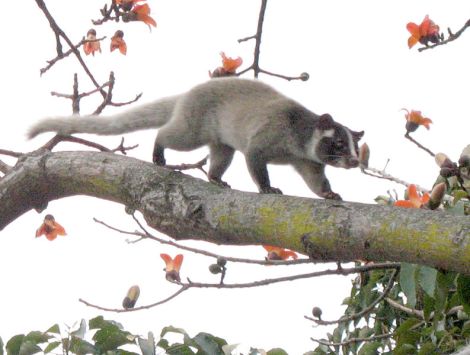
Denise ChanGiven the choice of being on this tree and pooping out coffee for jerks, I will take the tree.
Kopi Luwak, the world’s most expensive coffee at $230 a pound, is probably really delicious. The problem is that while it may be just wonderful for the people drinking it, animal rights groups are discovering that it is not so wonderful for the Asian palm civet. This is not terribly shocking considering the way Kopi Luwak is created: The fruits of the coffee plant are ingested by civets, a feline creature native to Southeast Asia. The civet then poops out a bean which has been essentially chemically roasted by the civet’s digestive enzymes, and therefore has a caramel smoothness that can’t achieved by mere roasting. Supposedly.
A life that involves eating and having your poop harvested sounds like it might be kind of relaxing. Being a free-range living coffee roaster might not be so bad. But, as it turns out, that’s not what’s happening in Kopi Luwak production. On the contrary, civets are forced to live in tiny cages. They are separated from their young. They are force-fed, and they only get to eat coffee cherries, which is disgusting and unhealthy. Finally, while the Asian palm civet is common, the civet coffee industry is also using other kinds of civets that are endangered.
Chris Shepherd, deputy regional director of the conservation NGO Traffic Southeast Asia, told the Guardian: “People need to be aware that tens of thousands of civets are being kept in these conditions. It would put people off their coffee if they knew.” Indeed. Civet coffee is certainly not the biggest environmental issue in the world, but it’s certainly not a step in the right direction.



